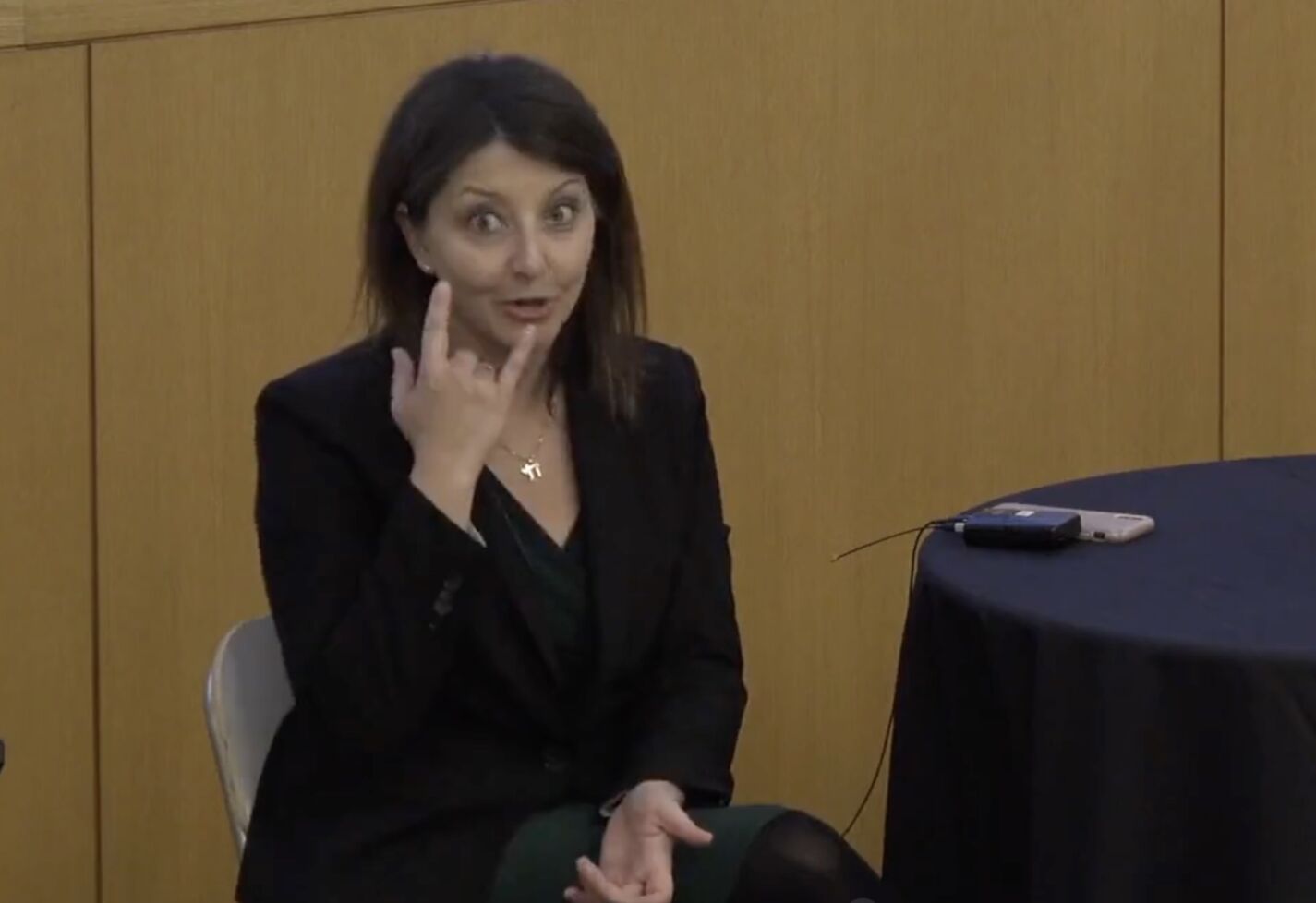In 2020, Gov. Roy Cooper issued a slew of executive orders under the rubric of limiting the spread of Covid-19, which he justified by the slogan of “science and data.” State media, either too cowed by the very idea of the virus or too concerned with producing a question soft enough to clear with the governor’s staff so as to be called upon during one of his “virtual” press conferences, were loathe to question the governor’s orders.
That task fell to ordinary citizens, other media, and experts and researchers. At the John Locke Foundation, for example, we questioned this unprecedented seizure of autocratic power by the governor according to their legality, their changing rationales, their devastating negative consequences, and their flimsy “scientific” rationale.
Our Emergency Powers Resource Page provides a handy compendium of this work on behalf of North Carolinians.
“Arbitrary and Capricious” Treatment
The recent, unanimous Court of Appeals decision in North Carolina Bar and Tavern Association v. Roy A. Cooper, III provided fresh confirmation of the governor’s unconstitutional actions and their flimsy rationale. The ruling also pointed toward the importance of another reform championed by Locke in the wake of Cooper’s abuse of emergency powers.
The Appeals Court noted that Cooper “relied on ‘science and data’ he claimed created a reasonable basis to distinguish between types of bars, thus letting some reopen while keeping others closed.” Judges cited an inclination to view Cooper’s “science and data” favorably, but according to the opinion written for the court by Judge April Wood:
Our careful review of the Record does not reveal the existence of any scientific evidence demonstrating Plaintiffs’ bars, as opposed to the bars located in other establishments serving alcohol, posed a heightened risk at the time Executive Order No. 141 was issued.
No scientific evidence backed Cooper’s decision to shut down bars. Not any.
Media should have been asking for this evidence from the outset, but they did not. Instead, they worked (from home) to portray the victims of Cooper’s shutdown and lockdown orders as dangerous, selfish people who wanted people to die.
Cooper’s Health and Human Services secretary at the time, Mandy Cohen, would later give the nation a glimpse of the shockingly arbitrary and capricious nature of the administration’s decision-making during Covid. She laughed in 2022 about blithely making decisions about people’s livelihoods over phone calls with the Health and Human Services secretary in Massachusetts:
“When she was like, ‘Are you going to let them have professional football? And I was like, ‘Nope.’ And she was like, ‘Ok neither are we, neither are we,’ ” Cohen said. “So it was conversations like that. Or I’d be like, ‘So when are you going to think about lightening up on that? And they’d be like, ‘Next Monday.’ And I’d be like, ‘next Monday.’ ”

Former DHHS Secretary Mandy Cohen reminiscing over when, under Gov. Roy Cooper’s abuse of emergency powers, she would make decisions affecting people’s livelihoods over a phone call with her friend in Massachusetts (Source: Michael P. Senger on “X”)
The Appeals Court found several problems with Cooper’s assertions of “proven” higher risk of Covid in strictly bars vs. other establishments that serve alcohol. They include:
The governor’s evidence did not differentiate among places serving alcohol.
“[T]hese materials do not include any distinctions between different types of bars.”
The governor’s evidence came months after the governor had issued his orders.
“[T]his purported scientific rationale for closing private bars but no other types of bars was over seven months delayed.”
The governor apparently considered his own order as evidence.
“Defendant [Cooper] cannot reasonably rely on his own assertion within an executive order as though it were itself a scientific study.”
Cooper “violated Plaintiffs’ right to enjoy the fruits of their own labor from the operation of their respective businesses,” and his “unequal treatment of Plaintiffs compared to other similar establishments was illogical and not rationally related to [his] stated objective of slowing the spread of COVID-19.”
The governor relied on news articles and opinion pieces, which he submitted as “science and data.”
“Defendant [Cooper] references a Washington Post article dated 14 September 2020 … a National Public Radio article titled ‘How Bars Are Fueling COVID-19 Outbreaks,’ which is an interesting opinion piece but does not link to a scientific study (or, pursuant to our review, even refer to a study) … [and] an article titled ‘Over 100 COVID-19 cases linked to outbreak at Tigerland Bars in Baton Rouge,’ …. ‘Research’ such as these news articles could be conducted by private citizens utilizing Internet search engines.”
The governor’s only scientific study in the record did not differentiate among types of bars and other establishments.
“Again, this study does not differentiate between various types of bars; it would apply equally to the bars Defendant [Cooper] allowed to resume operations as to Plaintiffs’ bars.”
The governor’s only scientific study in the record came months after he ordered some bars to remain closed and let the other types of bars to open back up.
“Moreover, another significant problem with Defendant’s [Cooper’s] reliance on this study is that Executive Order No. 141, which closed private bars but allowed restaurants to reopen, was issued 20 May 2020, and this study was not posted until 28 September 2020. Defendant [Cooper] could not have relied upon this study and, therefore, at the time the executive order was issued, could only speculate that bars might pose a greater risk than restaurants where alcohol is also consumed.”
The governor showed no logical reason to treat private bars differently.
“Defendant [Cooper] has not demonstrated any logic in the complete closure of bars for on-premises service when the same measures that allowed other types of bars, such as hotel and restaurant bars, to open could have been applied to the operation of those businesses.”
The governor’s actions were arbitrary and capricious.
“Allowing restaurants and some types of bars to reopen with restricted capacity while simultaneously prohibiting Plaintiffs’ bars from reopening in like manner was arbitrary and capricious.”
The governor violated bar owners’ constitutional rights.
“The continued closure of Plaintiffs’ bars while permitting other similar establishments to reopen under certain conditions violated Plaintiffs’ right to enjoy the fruits of their own labor from the operation of their respective businesses. Therefore, the unequal treatment of Plaintiffs compared to other similar establishments was illogical and not rationally related to Defendant’s [Cooper’s] stated objective of slowing the spread of COVID-19.”
No Compensation for Business Owners Victimized by Executive Order “Takings”
The Appeals Court denied the bar owners’ claim that Cooper’s actions amounted to a governmental taking of their property, for which they would have a statutory right of compensation. The reason for the denial is, among others, that the General Assembly had “considered which governmental actions would trigger a statutory right to compensation … while excluding others,” and that “[o]rdering mandatory business closures is not one of those actions which triggers a statutory right of compensation under the statute as it is currently written.”
Locke warned of this lack of statutory language to compensate victims of takings like Cooper’s in our “Carolina Rebound” guide to state policy in the midst of Covid (it was in fact published in May 2020). We recommended then (and recommend the same in our current “Policy Solutions” guide):
Provide clear and fair guidelines for compensating business and property owners victimized by regulatory takings such as executive shutdown orders.
State policymakers have been seeking to reform eminent domain in North Carolina to ensure takings are for true public uses and are fully compensated. Due to COVID-19, it has become clear that policymakers should also provide clear and fair guidelines for compensating property owners victimized by regulatory takings.
The case returns to a trial judge in light of the Appeals Court’s findings.
Epilogue: “Judge Covid” Keeps Changing His Mind About If and Where You Can Get Drinks with Friends
The “Judge Covid” series in 2020 illustrated and satirized the obvious arbitrariness and capriciousness of Cooper’s orders and other governmental and media approaches to Covid issues. The issues covered in this case came up in “Judge Covid decides: Getting drinks with friends.” Here’s an excerpt:

NO MORE THAN 50% SEATING
But that’s just sil — I mean, yes, your Horror. What about half a bar?
BARS ARE UNSAFE
HALF A RESTAURANT BAR IS SAFE
Really? What about taproom bars?
DANGEROUS
Wait, why? What about grocery store bars?
GROCERY STORES ARE ESSENTIAL
Yes, I know, but —
I’VE CHANGED MY MIND
This again.
HALF A TAPROOM BAR IS SAFE
Great, so restaurants, gro—
HALF
Fine, so half restaurants, half restaurant bars, half grocery store bars, half taproom bars, are safe. What about half bars?
BARS ARE UNSAFE
That doesn’t make any sense, how come bars—
DO YOU WANT TO BE FOUND IN CONTEMPT OF COVID COURT
No, no, your Horror. I can get a drink outside with friends, though, yes?
…
Er, with social distancing, of course?
OUTSIDE IS SAFE WITH SOCIAL DISTANCE
Can it be outside tables belonging to a restaurant?
HALF A RESTAURANT OUTSIDE IS SAFE WITH SOCIAL DISTANCE
Great! Now, can I get a drink outside with friends, with social distance, served by half a bar with outside seating?
BARS ARE UNSAFE
This is not going to work out.
YOU CANNOT WORK OUT
GYMS ARE UNSAFE


